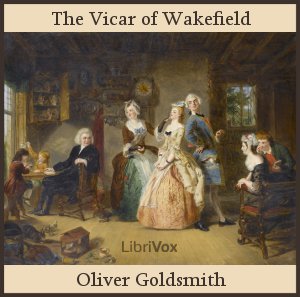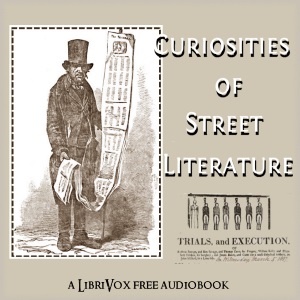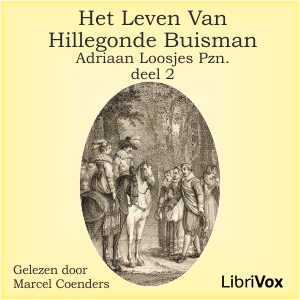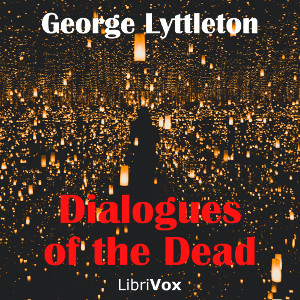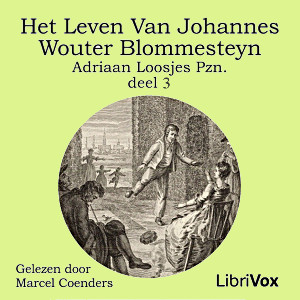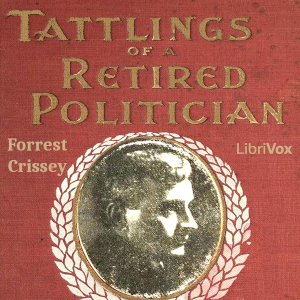A fictitious account of a "friend" of William Shakespeare, who accompanies him from his birth to his death and beyond, chronicling Shakespeare's life, adventures, speeches, and impromptu bursts of poetry. (Summary by Tricia G.)
20 episodes
Turgenev's shy hero, Tchulkaturin, is a representative example of a Russian archetype - the "superfluous man", a sort of Hamlet not necessarily dignified with the title Prince: an individual of comfortable means leading a dreary existence, without purpose and led on by events which may, as in this story, engulf him. The novella takes the form of a diary started by Tchulkaturin in the shock of being diagnosed as having a terminal illness. The journal entries cover a period of two weeks, leading to his death. Tchulkaturin quickly homes in on the only significant event in his life - an unreciprocated falling-in-love leading haphazardly to a non-fatal duel that leaves him desolated and fully conscious of the futility of his inactive existence.(Summary by Martin Geeson)
5 episodes
Sidney and Cecilia are best childhood friends who are forced to part for 5 years. In that interval, Sidney Bidulph - an undoubtedly good and dutiful woman - writes to her friend about everything: her marriage, her children, her other friendships and, above all, about her great love for Mr. Faulkland. In an amazing and unforgettable way, this book shows us that the road to happiness is not always clear - and that sometimes doing what seems to be right is not really the right thing to do. With Rachel's lovely reading, we see her - Sidney Bidulph - as she was meant to be, and as she really is. (Summary by Stav Nisser)
46 episodes

"My name is Mary Cary. I live in the Yorkburg Female Orphan Asylum. You may think nothing happens in an Orphan Asylum. It does. The orphans are sure enough children, and real much like the kind that have Mothers and Fathers; and that’s why I am going to write this story." So begins Mary’s diary, which she fills with her various doings and misadventures at the Asylum in Virginia and her sharp observations about life and human nature. She loathes Miss Bray, the head of the Asylum, who is not above telling bald-faced lies to the Board to further her own selfish ends. She loves Miss Katherine, the Asylum’s resident nurse, who has befriended Mary and serves as a gentle role model for the child. As for Martha, she is Mary’s "other self" who speaks out—and sometimes acts out—in spite of Mary’s better nature. When she unexpectedly discovers her family background, Mary writes a letter to her uncle that leads to some surprising results on the way to a happy ending.
The Chicago Record-Herald of March 12, 1910 stated, "Let’s be glad for books like Mary Cary. It isn’t so much what Mary Cary does, however, as what she is, bless her! that warms the cockles of the chilliest, most snugly corseted heart." (Summary by Jan MacGillivray)
15 episodes
Nancy 'Nance' Olden, a young and very pretty woman, is an accomplished liar and thief. Raised in a horrific orphanage, called the Cruelty by its occupants, Nance and her criminal boyfriend, Tom Dorgan, are pulling a con when the book begins. The results of their act propel Nance into a series of events that she could never have imagined. This was Miriam Michelson's first novel and it was considered a 'blockbuster' in its day. Ranked fourth on the list of bestsellers of 1904 by "Publishers Weekly," Michelson's book was a source of controversy due to the dubious ethics and morals of its heroine. (Summary by Lee Ann Howlett)
17 episodes
The Moon and Sixpence is a 1919 short novel by William Somerset Maugham based on the life of the painter Paul Gauguin. The story is told in episodic form by the first-person narrator as a series of glimpses into the mind and soul of the central character, Charles Strickland, a middle aged English stock broker who abandons his wife and children abruptly to pursue his desire to become an artist. (Summary by Wikipedia)
21 episodes
Die 15-jährige Ilse Macket lebt auf dem Gut Moosdorf in Pommern und wächst nach dem Tod der Mutter wild und ohne jede Erziehung auf. Sie benimmt sich jungenhaft, wird sogar als tyrannisch erlebt - bis die Stiefmutter das Haus betritt.
„Frau Anne“ und Pfarrer Wollert schlagen dem Vater vor, Ilse zur standesgemäßen Dame erziehen zu lassen. Die Familie beschließt, das Mädchen in einem Pensionat unterzubringen: Steht doch durch Ilses "wenig damenhafte" Art die gesamte Zukunft des jungen Mädchens auf dem Spiel...
Und somit können wir den Werdegang des Trotzkopfs und ihrer Mitbewohnerinnen im Pensionat miterleben. (Zusammenfassung von schrm, basierend auf dem Text von Elli und Wikipedia)
42 episodes
A satirical look at early biblical events from the point of view of someone who was there to witness most of them: the oldest man in recorded history. (Introduction by Matthew Reece)
10 episodes
First published in 1766, the loveable and innocent Dr Primrose and his family have given pleasure to all that have read it.The story opens with the vicar losing his fortune and moving to another parish. What follows is a tale of love, deceit, betrayal, humour and a hidden hero…..It was one of Charles Dickens favourite books and a source of inspiration to him. No further recommendation is needed. Enjoy. (Summary by Tadhg)
32 episodes
This novella by the acclaimed Elizabeth Gaskell follows the reminiscences and life of aristocratic Lady Ludlow, told through the eyes of one of her charges, the young Margaret Dawson. Lady Ludlow epitomizes the unwillingness of the old English gentry to accept the progression of social reform and technology, such as education for the poor and religious leniency. She reminisces about her friends in the French revolution and tries to protect and guide the numerous young ladies she has taken under her care. [Summary by Rosie]
14 episodes
Jane Eyre. Eine Autobiographie (Originaltitel: Jane Eyre. An Autobiography), erstmals erschienen im Jahr 1847 unter dem Pseudonym Currer Bell, ist der erste veröffentlichte Roman der britischen Autorin Charlotte Brontë und ein Klassiker der viktorianischen Romanliteratur des 19. Jahrhunderts. Der Roman erzählt die Lebensgeschichte von Jane Eyre, die nach einer schweren Kindheit eine Stelle als Gouvernante annimmt und sich in ihren Arbeitgeber verliebt, jedoch immer wieder um ihre Freiheit und Selbstbestimmung kämpfen muss. Der Stoff des Romanes wurde häufig für Theater, Film und Fernsehen bearbeitet. Provisorische Zusammenfassung von Wikipedia
49 episodes

"Satan's Diary", Andreyev's last work, was completed by the great Russian a few days before he died in Finland, in September, 1919. But a few years ago the most popular and successful of Russian writers, Andreyev died almost penniless, a sad, tragic figure, disillusioned, broken-hearted over the tragedy of Russia. In "Satan's Diary", Andreyev summoned up his boundless disillusionment in an absorbing satire on human life. Fearlessly and mercilessly he hurled the falsehoods and hypocrisies in the face of life. He portrayed Satan coming to this earth to amuse himself and play. Having assumed the form of an American multi-millionaire, Satan set out on a tour through Europe in quest of amusement and adventure. Before him passed various forms of spurious virtues, hypocrisies, the ruthless cruelty of man and the often deceptive innocence of woman. Within a short time, Satan finds himself outwitted, deceived, relieved of his millions, mocked, humiliated, beaten by man in his own devilish devices. (Summary by Herman Bernstein, in the Preface)
30 episodes
Die junge Thymian schreibt episodenhaft über ihr Schicksal in Tagebuchform: Gesellschaftskritisch prangert sie darin das schwere Los jener Frauen an, die durch das Fehlverhalten der Männer an den Rand der Gesellschaft gedrückt werden, so dass den meisten nur noch der Ausweg auf die schiefe Bahn der Prostitution bleibt.Obwohl Thymian den Weg in ein geregelteres Leben zurückfindet, bleibt in den Augen der „anständigen Gesellschaft“ der Makel immer an ihr haften.Margarete Böhme (1867-1937) veröffentlichte das Tagebuch 1905 in Berlin. Zusammenfassung von Sonia
36 episodes
Herbert Jenkins' most popular fictional creation was Mr. Joseph Bindle, who first appeared in a humorous novel in 1916 and in a number of sequels. In the preface to the books, T. P. O'Connor said that "Bindle is the greatest Cockney that has come into being through the medium of literature since Dickens wrote Pickwick Papers". The stories are based on the comedic drama of life at work, at home and all the adventures that take place along the way. Bindle leaves a path of good-natured destruction behind him and walks away unscathed every time. He is not above embellishing and loves the joke. He refers to jokes as the anesthetic that allows him to endure the operation of life. When he sets about fixing things, they had better well stay fixed or they'll have him to deal with. Indeed, he is a sort of superhero of the Everyman. Let the hilarity begin! (Summary by Don Jenkins)
21 episodes

Men moet verklaren dat de lezende wereld, als zij niet ontvankelijk was voor de 'Lijnen van geleidelijkheid', al heel ondankbaar zou moeten zijn. Men verslindt Ouidà, waardeert Bourget, prijst Zola; welnu, het boek is kleurig, artistiek, Italiaansch als Ouidà; psychologisch tot in het weeke als Bourget, en de 'bête humaine' doet er zich gelden als bij den brutaalsten verist; terwijl Couperus zich de moeite geeft over dat alles enkele malen, - niet vaak genoeg, - het tooverkleed van zijn mooi modern Hollandsch te spreiden. En dat alles in weloverwogen verhouding, in pikante afwisseling en ook zich aansluitend bij tal van andere stromingen; wanneer wij langzamerhand bijna genoeg gaan krijgen van den wel wat heel platonischen Duco, wisselt de auteur hem af met den heel onplatonischen huzaar; als het pension en het bovenkamertje wat eentonig worden, komt de pracht van de feodale burcht in de Abruzzen met de Camera degli sposi, or-sur-or, en de zonsondergang over het meer van San Stefano; als we wat veel aan Ouidà denken, heeft Duco in zijn fatalistische afstand-doen iets Tolstoïsch. Inderdaad is het in het voordeel van een groot talent, zich eens voor een enkele maal in gelijke conditiën met de gewonen te plaatsen; een Psyche of Fidessa doen niet zoo Couperus' superioriteit uitkomen als een gewone amusementsroman, in dit geval 'Lijnen.'
(Uit: Nederland 1900, nr.3, p.360-361.)
23 episodes
Coming to New York from the Russian Empire, Abraham Cahan founded the Jewish Daily Forward to help Yiddish-speaking immigrants adjust to life in New York. He also became a popular novelist, best known for his semi-autobiographical The Rise of David Levinsky, about a Russian Jew who emigrates to America and rises from rags to riches. - Summary modified from WikipediaProof-listened by marinal88 and Mark Chulsky
59 episodes
"J. M. Barrie is most noted for being the author of Peter Pan, the beloved book about a child who does not want to grow up. The two Tommy novels, as they are collectively referred to, are also about a child who does not want to grow up. Yet, unlike Peter Pan, he has to. Tommy grows up in the slums of London at the end of the 19th century in difficult conditions. This book explores his boyhood. How would his childhood fantasies collide with the hard conditions in which he lives and the reality of his growing up? The Tommy novels are considered semi-autobiographical." - Summary by Stav Nisser.
37 episodes
A historical fiction novel set in Paris (1572) during Charles IX's reign and the French Wars of Religion. Marguerite de Valois, daughter of deceased Henry II, is the novel's protagonist set against the infamous schemes of the Catholic power player, Catherine de Medici. - Summary by Publisher
66 episodes

Anne of Green Gables is all grown up and married, and this is the story of her daughter “Rilla”, named for the indomitable Marilla Cuthbert of Anne’s childhood. The young Rilla will need all her strength for the dark days ahead, as her coming of age will be in the midst of World War I. Her brothers and sweetheart will go to war, and not all of them will come back. Her sisters will become nurses, but Rilla herself is too young. What can she do back home to support the war effort? How can she be involved in doing good in her own backyard? What difference can one person’s ‘keeping the faith’ make in the titanic struggle of world events?
LM Montgomery, in this final installment of the Anne of Green Gables books, takes us through the terror, the suspense and the sacrifices of ‘The Great War’ as told through the eyes of Rilla. Of course, as in any girl’s diary, there are also chronicled the romances of Miranda, Gertrude, Mary and Rilla herself. At the same time, the small details of everyday life lighten the drama with humorous stories of the antics of the Ingleside cat, the putting on of a wedding with one day’s notice and ‘that prayer meeting’ which will forever go down in the local lore of little Glen St Mary! - Summary by Beth Thomas
Cast:
Narrated by Esther ben Simonides
Rilla Blythe: Rachel
Susan Baker: Beth Thomas
Mrs. Anne Blythe: Adele de Pignerolles
Dr. Gilbert Blythe: Peter Yearsley
Miss Gertrude Oliver: Kristin Gjerløw
Walter Blythe: Michael Landu
Jem Blythe: Mike Harris
Cousin Sophia: Sonia
Mary Vance: Jennifer Fournier
Kenneth Ford: Dillon McFarlane
Mr. John Meredith/Mr. Norman Douglas: John Burlinson
Irene Howard: Anna Vince
Other characters voiced by: Etel Buss, Mark Chulsky, Michele Eaton, Kathrine Engan, Gaby, Rupert Holliday, Lydia, Diana Majlinger, MaryAnn, Hannah Mary, David Lawrence, Tomas Peter, David Purdy, Roohi, Saffie, Shakira Searle, K. Adrian Stroet, SuperCoconut, Maggie Travers, Twinkle, and Leanne Yau
Audio edited by Rachel
36 episodes

The story of a biracial man living in the deep south after the reconstruction era. He is young and talented. Yet, in order for him to avoid stigma, he has to pass as white. But would his sense of belonging and solidarity to the black community of the time catch up with him at the end?
"It is very likely that the Negroes of the United States have a fairly correct idea of what the white people of the country think of them, for that opinion has for a long time been and is still being constantly stated; but they are themselves more or less a sphinx to the whites. It is curiously interesting and even vitally important to know what are the thoughts of ten millions of them concerning the people among whom they live. In these pages it is as though a veil had been drawn aside: the reader is given a view of the inner life of the Negro in America, is initiated into the "freemasonry," as it were, of the race.
These pages also reveal the unsuspected fact that prejudice against the Negro is exerting a pressure which, in New York and other large cities where the opportunity is open, is actually and constantly forcing an unascertainable number of fair-complexioned colored people over into the white race.
In this book the reader is given a glimpse behind the scenes of this race-drama which is being here enacted,—he is taken upon an elevation where he can catch a bird's-eye view of the conflict which is being waged." (from the preface by the publisher and Stav Nisser.)
12 episodes
This is a collection of broadsides from London. Broadsides are short, popular publications, a precursor to today's tabloid journalism. The collection contains sensationalist and sometimes comical stories about criminal conduct, love, the Royal Family, politics, as well as gallows' literature. Gallow's literature (confessions, verses etc. relating to individuals condemned to public execution) were often sold at the execution. As a collection these broadsides are a reminder of how important the printer was at this time -- it is surely no coincidence that the printers are printed at the end of every broadside, while the authors remain anonymous. - Summary by kathrinee
100 episodes
Een historisch vrijwel correcte beschrijving van het leven van Elisabeth Musch (kleindochter van Jacob Cats) en haar man Henri de Fleury de Culan (heer van Buat) in de tijd van Jan de Witt tot 1666 in de Nederlanden. (Marcel Coenders)
36 episodes
Per the author: "The book has one high ambition. It has tried to tell the sad story of the wilderness itself—to show, from the woodsman's view-point, the play of great forces which have been tearing down his home and turning it into the flesh and bone of cities."
But this story is much more than that. It revolves around Silas Strong and his distaste for the modernization and destruction of his beloved forest surroundings, and how it pleases him to teach younger folk how to appreciate that which has been given us. He takes matters into his own hands, as only Silas Strong can do.
Addison Irving Bacheller was an American journalist and writer who founded the first modern newspaper syndicate in the United States. He was a graduate of St. Lawrence University in Canton, New York in 1882. - Summary from Book preface, Wikipedia, Roger Melin
36 episodes
This is the third book of the 'Marshmallow' trilogy. It is a fictional autobiography written by Ethelwyn Percivale, or 'Wynnie'. Her father is a clergyman, Mr. Walton, whose history has already been told in "A Quiet Neighborhood", the first of the three books. Wynnie has a happy childhood and falls in love with a struggling artist. It is about Wynnie and her family, and her little circle of old and new friends. We learn much about the poor of society of that time. This book is set in the real, every-day world, and our narrator is serious when she calls her life ''quiet and ordinary''. Though there are some exciting incidents, visits made, and long conversations about God. This book is a delightful read. - Summary by fiddlesticksThe trilogy:Annals of a Quiet NeighbourhoodThe Seaboard ParishThe Vicar's Daughter
49 episodes
The sequel to "Chicot the Jester" and final book of the "Valois Romances." This story begins six years after the famed "Duel of the Mignons" between the favorites of the courts of King Henry III and Henry the Duke of Guise (somewhat allied with the King's brother, Francis, Duke of Anjou and Alencon). Dumas concludes his historical fiction on the War of the Three Henries while (1) detailing the formation of the Forty-Five Guardsmen (who were to become the Musketeers), (2) following Chicot the Jester as he stays loyal to the failing regency of King Henry III, and (3) continuing the story of Diana (a principal character in the previous book). - Summary by jvanstan
91 episodes
If a thing is not sensibly true it may be morally so. If it is not phenomenally true it may be so substantially. And it is possible that one may see substance in the idiom, so to speak, of the senses. That, I take it, is how the Greeks saw thunder-storms and other huge convulsions; that is how they saw meadow, grove and stream—in terms of their own fair humanity. They saw such natural phenomena as shadows of spiritual conflict or of spiritual calm, and within the appearance apprehended the truth. So it may be that I have done. Some such may be the explanation of all fairy experience. Let it be so. It is a fact, I believe, that there is nothing revealed in this book which will not bear a spiritual, and a moral, interpretation; and I venture to say of some of it that the moral implications involved are exceedingly momentous, and timely too. I need not refer to such matters any further. If they don't speak for themselves they will get no help from a preface. - Summary by Maurice Hewlett
16 episodes
Een levensbeschrijving van de ideale Hollandse vrouw uit het midden van de 17de eeuw. Deel 2: In dit deel maakt Hillegonda aanstalten om te gaan trouwen met haar kapitein.
19 episodes

My grandmother Gertrude received a copy of The Friendly Road for Christmas in 1919. It must have been a special gift book--green leather binding, gold embossing, a sheet of tissue paper protecting the color plate facing the title page--this a painting of a solitary man enjoying a swim in a sun dappled stream with the caption "Surely it is good to be alive at a time like this."
Written in first person, pseudo autobiographical style, the “author” of The Friendly Road, David Grayson, is a writer,* living on a farm with cows to milk, and ducks and pigs to feed, and fields in need of plowing. One day he just slings a few belongings in a pack and walks off, leaving the cows unmilked and his sister Harriet standing in the doorway. "My sober friendGrayson writes, "have you ever tried to do anything that the world at large considers not quite sensible, not quite sane? Try it!" The rest of the book is an odd mixture of nostalgia for a gentler, kinder age; adventures, as Grayson relies on the charity of strangers to get by; with a bit of progressive politics thrown in. After bumming for several days, Grayson arrives in the "City," where a strike is in progress. He sympathizes with the workers, but he is appalled by "the ill-smelling streets and dirty sidewalks and swarming human beings . . . the evidences of poverty, dirt, and ignorance." And guess what? He returns home to his farm, and Harriet bakes him a rhubarb pie.
Gertrude, who had immigrated from Germany to the United States in 1892 at the age of 17, was 44 years old that Christmas. She was living on a fruit ranch in western Washington state, with her husband, a school teacher, also a German immigrant, whom she had married in 1898. She had 6 children, the oldest 20, the youngest only 2. The last few years had not been easy for this family. Gertrude's 10-year old daughter Mary, my mother, was slowly limping towards recovery from a bout of polio. Worse yet, during World War I Gertrude's husband was unjustly accused of being a "German sympathizer" despite the fact that his oldest son was a U.S. Army volunteer, and he was forced from his teaching post. His job loss meant more work for Gertrude, because, as my grandfather later explained to a journalist, after losing his job, he decided to “retire” to the country--"to live calmly, read Homer and Goethe and Balzac and Emerson (and) raise fruit and chickens."**
Gertrude entrusted several of her favorite books to my teenage self before she died in 1958. Another was a book of poems entitled Because I Love You, inscribed to Gertrude as a birthday present in 1897 by a young man who was not my grandfather! Books. . . choices . . .
*David Grayson was a pseudonym used by the actual author of The Friendly Road, Ray Stannard Baker.
**Louis Adamic ,”A Man from the Black Forest," in Two Way Passage (1941).
( summary by Sue Anderson)
13 episodes
This book continues Sentimental Tommy, also in the Librivox catalogue. Tommy grows up and marries Grizel. But life is not only roses and rainbows. This book has all the elements of a good love story, but it is also a book about growing up and finding out your distinct voice in the world. - Summary by Stav Nisser.
35 episodes
This book is often described as an instruction manual on the subject of rat-catching. It does indeed contain a good deal about rats, ferrets and dogs, but it is much more than that. Barkley fills the book with humour, sharp observation, and his sheer joy of living in the countryside. The framework of the book is indeed a course by fictional rat-catcher Bob Joy, who suggests that rat-catching might be a suitable alternative career for boys at Eton, Harrow and the other major English public schools. We follow Bob as he takes us through some typical days working at both rat catching and rabbit catching using dogs and ferrets. Barkley adds in more sly digs at the public school system, stories about dogs, stories about country folk, and more stories about dogs. A glorious hodge-podge of a book. (Clive Catterall)
11 episodes
In W.H. Hudson’s first novel, an Englishman wandering on horseback across the pampas finds adventure and romance in Uruguay. The full title became: “The Purple Land: Being the Narrative of One Richard Lamb's Adventures in The Banda Oriental, in South America, as Told By Himself”. In the preface to "The Sun Also Rises", President Teddy Roosevelt said that everyone should read "The Purple Land."- Summary by A. Gramour
31 episodes
Na de beschrijving van de ideale Nederlandse man uit de 17de eeuw (Maurits Lijnslager) en de ideale Nederlandse vrouw uit het midden van de 17de eeuw (Hillegonda Buisman) nu de beschrijving van de slappe en mislukte Nederlander uit de 18de eeuw. In dit eerste deel verliest Johannes na escapades in een bordeel zijn geliefde Antje Wijnstok en moet hij naar Suriname 'vluchten'. (Marcel Coenders)
Link naar deel 2
Link naar deel 3
Link naar deel 4
21 episodes
Can the dead of different ages and spaces meet in the afterlife? This is a thought that has occupied a number of writers throughout literature, George Lyttleton being one of them. He allows Plato to discourse with Fenelon, allows a native American warrior to explain the barbarity of the custom of duels among gentlemen to a victim of such a duel, and he has William Penn clash with Fernando Cortez over Cortez's cruelty in Mexico. The characters of the conversations are as different as the subjects, drawing not only on Lyttleton's rich historical knowledge, but also on his experience as a statesman. - Summary by Carolin
33 episodes
In Pendennis, William Makepeace Thackeray skillfully shows the coming of age of Arthur Pendennis, a young gentleman trying to make his way in the world. Pen's difficulties in finding his place in the difficult maze of social obstacles are created to some extent by his being raised in the country and being from an ancient though impoverished family. We follow his course from the village in which he was raised via Oxbridge to London, meeting the most memorable characters, falling in and out of love, navigating the difficulties of society, and hopefully finally arriving at a happy end. - Summary by Carolin
77 episodes
Na de beschrijving van de ideale Nederlandse man uit de 17de eeuw (Maurits Lijnslager) en de ideale Nederlandse vrouw uit het midden van de 17de eeuw (Hillegonda Buisman) nu de beschrijving van de slappe en mislukte Nederlander uit de 18de eeuw. Vrouwen, drank en vooral ook ijdeltuiterij brengen onze held bijna aan de afgrond van het graf. (Samenvatting door Marcel Coenders)
Link naar deel 1
Link naar deel 3
Link naar deel 4
17 episodes
Within these pages find passages from the "lost diaries" of a wide range of people: royal, regular, famous, infamous, historical, and fictional. - Summary by A. Gramour
20 episodes
Na de beschrijving van de ideale Nederlandse man uit de 17de eeuw (Maurits Lijnslager) en de ideale Nederlandse vrouw uit het midden van de 17de eeuw (Hillegonda Buisman) nu de beschrijving van de slappe en mislukte Nederlander uit de 18de eeuw. Johannes maakt in dit deel werk van een schoon, jong, fris Fries meisje .... (samenvatting door Marcel Coenders)
Link naar deel 1
Link naar deel 2
Link naar deel 4
17 episodes
The Hundred Years' War: a series of conflicts waged from 1337 to 1453 by the House of Plantagenet, rulers of the Kingdom of England, against the House of Valois, rulers of the Kingdom of France, over the succession to the French throne. It was a time of intrigue, plot, murder and romance. Agnes Sorel, aged 20, became the favorite mistress of the King of France, wielding much influence over him and earning many enemies. Her untimely death at the age of 28, just days after bearing him a fourth child, was blamed on dysentery. In this novel, we follow the trials of Jean Charost, secretary to the Duke of Orleans and brother of the king; and see how his life was entwined with that of the beautiful Agnes. - Summary by Lynne Thompson
53 episodes
"The death of a patriarch, unexpected inheritance of a second son, dark and stormy castle, faithful retainers, scary governess who never speaks, star-crossed lovers -- I could go on, but that would involve spoilers! All you'd want and expect from a Gothic romance. One more thing -- real men do cry!"
(summary by sylviamb)
21 episodes
Na de beschrijving van de ideale Nederlandse man uit de 17de eeuw (Maurits Lijnslager) en de ideale Nederlandse vrouw uit het midden van de 17de eeuw (Hillegonda Buisman) nu de beschrijving van de slappe en mislukte Nederlander uit de 18de eeuw. Na deze drie kloeke boeken, en meer dan 100 luisteruren weten we eindelijk wat de identiteit was en is van de Nederlanders, Hollanders, Amsterdammers, Kaaskoppen of hoe je ze ook maar wilt noemen... Het zijn net mensen, dat waren ze en zullen ze tot in alle eeuwigheid blijven ... (Samenvatting door Marcel Coenders)
Link naar deel 1
Link naar deel 2
Link naar deel 3
19 episodes

This story ran as a serial in 1852 in the New York Sunday Dispatch, and for more than 160 years was buried in obscurity, unknown to the world as novel written by Walt Whitman. Zachary Turpin, a graduate student specializing in Whitman's works, had seen in his notes a sketch of a novel including the characters Covert, Wigglesworth, Smytthe and Jack Engle, but no work including these characters had ever been found. After poring over endless pages of newspapers of the era however, Turpin found this advertisement for an upcoming serial:
“A RICH REVELATION. --This week's SUNDAY DISPATCH will contain the LIFE AND ADVENTURES OF JACK ENGLE, an auto-biography, in which will be handled the Philosophy, Philanthropy, Pauperism, Law, Crime, Love, Matrimony, Morals, &c., which are characteristic of this great City at the present time, including the Manners and Morals of Boarding Houses, some scenes from Church History, Operations in Wall-st., with graphic Sketches of Men and Women as they appear to the public, and as they appear in other scenes not public. Read it and you will find some familiar cases and characters, with explanations necessary to properly understand what it is all about.”
And on finding those lines, Turpin unearthed the treasure.
The story is told in the first person by Jack Engle and has the feel of a Dickens tale set in New York City, with its rags to riches story and lively and engaging characters. (Margaret Espaillat)
11 episodes

First published as a serial in Fraser's Magazine in 1844 as The Luck of Barry Lyndon, The Memoirs of Barry Lyndon, Esq is a picaresque novel, narrated (occasionally charmingly, always unreliably) by a member of the 18th-century Irish gentry. Redmond Barry, later Barry Lyndon, describes his rise to - and inevitable fall from - the top of the English aristocracy. Romantic, military and political intrigue, as well as satire and pathos, follow. Editorial notes, courtesy of Thackeray's fictitious alter ego, G. S. FitzBoodle, interject further levels of irony, humour and detachment.Thackeray, who based the novel in part on the life and exploits of the Anglo-Irish rake and fortune-hunter Andrew Robinson Stoney, among other historical sources, significantly revised and reissued the book in 1856 under its current title.Its unreliable, morally dubious narrator, metafictional editor, and multiple layers of interpretive possibility make it a fascinating precursor to the modern novel, while Thackeray's characteristic interest in the specifics of 18th-century life ensures a rich and engaging backdrop.In 1975, Stanley Kubrick adapted the book for his film Barry Lyndon, since widely regarded as one of the finest films ever made.This audiobook was read from a 1902 edition edited by Walter Jerrold, who provides a brief introduction. - Summary by mb
22 episodes
"Armer Benno Stehkragen, dachte ich amüsiert, dir ist es im Leben kümmerlich genug gegangen, – und jetzt wird auch noch die Aufzeichnung deiner Lebensgeschichte von einem Granatsplitter durchbohrt!"
(Zitat aus dem Vorwort)
Das Buch wird meist als Satirewerk eingeteilt, fällt in die Sparte (Vor)Kriegsliteratur (und "Antihelden") und beschreibt in einer sentimentalen Traurigkeit - mit durchaus trocken-humorigen und lebensweisen Elementen - den Alltag eines normalen Lebens mit Tagträumen, Freuden und Leiden.
Anmerkung: Einige (Dialog-) Stellen sind im Dialekt geschrieben. Ich versuchte nicht, diese mir fremde Aussprache nachzuahmen und hielt mich eher an die inhaltliche/wörtlich-genaue Wiedergabe. Aber ich lade jede Frankfurterin und jeden Frankfurter herzlich dazu ein, dieses Buch als Version einzulesen! :-) (Zusammenfassung von schrm)
17 episodes
"This book is in turns funny and sad. Violet Osborne is a very beloved child with no financial problems. She is both beautiful and good, and of course she must be happy. Yet, as we learn, she is a manipulative and overbearing woman who would do anything to get her way. This book tells us about her life as a girl, and takes us through her marriage and motherhood. It is a pleasant read, as the book is so witty and charming and the descriptions are very realistic". Summary by Stav Nisser.
42 episodes
"The letters (non-partisan) of Hon. William Bradley, Ex-Governor and former veteran of practical politics, written to his friend and protege Ned who is still busy 'carving a career back in the old state.'" ( F. Crissey) This is a novel filled with humorous political anecdotes by the main character, the Honorable William Bradley, told for the benefit of his protege, Ned. It conveys a sense of the ironic and humorous side of politics in Washington and back in their home state.
23 episodes

“Come, Dora! I shall never be ready, if you don’t make haste. They will be here in ten minutes, and my hair is not half so nice as it ought to be, thanks to your carelessness.”
“You are very good to ignore my own claims to attention so utterly. I have been helping you this half-hour and have barely time enough left to change my frock. To make my own hair presentable is impossible now.”
“Why, what does it matter how your hair is dressed, or what sort of a gown you put on? You may just as well spare your pains, for unfortunately nothing that you can do seems to mitigate your ugliness. I’m sure I cannot think where you get it. You are—”
But, somehow, I did not feel inclined to wait for the end of Belle’s encouraging lecture. Perhaps it was because I was so often treated to my beautiful elder sister’s homilies that they had lost the spark of novelty and had acquired a chestnuty flavor. Perhaps I failed to recognize any generosity in her persistent efforts to nip such latent buds of vanity as from time to time tried to thrust their poor little heads above the chill crust of ridicule and contumely. Perhaps I was really as bad-tempered as I was said to be. Anyhow, my behavior could not claim to be either quiet or elegant as I stormily quitted Belle’s room, slamming the door behind me with such violence as to elicit from my more well-bred sister a little shriek of affected dismay. So far from feeling sorry that I had given Belle’s nerves a shock, I wished viciously that her fingers had been jammed in the doorway, or that something equally disastrous had occurred to take off the edge of her conceit and self-satisfaction." To be the homely sister is a torture to Dorrie, but she must make the best of it as she watches the beautiful Belle receive all the attention and adulation... but what choices will Belle make and what effect will they have on her life? And will Dorrie achieve the happiness even an ugly girl deserves? - Summary by Lynne Thompson
16 episodes
The author Sir Richard Steele, who was one of the writers for The Spectator, gets the opportunity to spend a month in Sir Roger de Coverley's house. (Elijah Fisher)
8 episodes
Uma das mais famosas obras de um dos mais famosos autores da Literatura Brasileira, Memórias Póstumas de Brás Cubas é considerado um marco na carreira de Machado de Assis, por apresentar de forma mais acabada o tom irônico e cáustico que viria a ser uma de suas principais características. A obra, narrada em primeira pessoa, é uma autobiografia escrita do além-túmulo, isto é, após a morte de seu autor. Por isso o livro foi também considerado um precursor do realismo fantástico. Citado por muitos autores famosos posteriores como inspiração, é título fundamental da Literatura Brasileira, atraindo uma nuvem de ensaios críticos e comentários teóricos, além de traduções para muitos outros idiomas. - Summary by Leni
32 episodes
Isaac Bickerstaff Esq. was a pseudonym used by Jonathan Swift as part of a hoax to predict the death of then famous Almanac-maker and astrologer John Partridge. In 1709, Richard Steele bolstered the release of his new satirical paper The Tatler by naming the fictitious Isaac Bickerstaff Esq. as editor. These are fictional essays/memoirs of Bickerstaff, written by Steele. Isaac writes from his time, and his personal things on what was going on. Bickerstaff, or rather Richard Steele, talks mostly about Mr. Bickerstaff's friends, his family, and the many different entertainments that Bickerstaff goes through. Bickerstaff also gets many opportunities to talk to people who are in trouble with their spouse or maybe looking for a partner, and so Bickerstaff plays the role of a father, giving advice to many characters throughout the book. (Summary by TriciaG & Elijah.)
28 episodes

The life of Doctor Johnson, told in his own words and (mostly) those of others around him. "Anyone with a teaspoonful of imagination can read this play with pleasure; with two teaspoonsful, I will not be responsible for results. He, or she, may be disappointed, for there is no plot to speak of. But there is talk - about as good talk as has ever been reported, and James Boswell as a reporter has never had an equal. (The Author)" - Summary by ToddHW
Cast list:
ACT 1:
Mr. STEWART: James Thomas
Mr. MAITLAND: Tomas Peter
Mr. MACBEAN: alanmapstone
Mr. LEVETT: Mike Casey
Dr. JOHNSON: Jim Locke
A VOICE (MACPHERSON'S): Lynette Caulkins
Mr. BOSWELL: Campbell Schelp
A SERVANT (LORD CHESTERFIELD'S): Aaron White
Mrs. WILLIAMS: Elsie Selwyn
FRANK (DR. JOHNSON'S COLORED SERVANT): Nemo
Mr. ALLEN: Adrian Stephens
Mrs. WOFFINGTON: Sandra Schmit
BET FLINT: Leanne Yau
POLL CARMICHAEL: Eva Davis
Mrs. THRALE: Foon
:
ACT 2:
Mrs. THRALE: Foon
JUDSON: Leanne Yau
Footman: Philip Watson
RATTLE: Eva Davis
Miss BURNEY: Sonia
Mr. MURPHY: Aaron White
Sir JOSHUA REYNOLDS: alanmapstone
Mr. GARRICK: Tomas Peter
Dr. JOHNSON: Jim Locke
Mr. THRALE: Steven Fellows
Dr. GOLDSMITH: Adrian Stephens
General PAOLI: Lynette Caulkins
Mr. BOSWELL: Campbell Schelp
Miss MORE: Elsie Selwyn
Miss STREATFIELD: Sandra Schmit
Mrs. DELANEY: Availle
Mr. BARETTI: Pier
:
ACT 3:
Dr. JOHNSON: Jim Locke
A SERVANT (Dr. Johnson's): Aaron White
RATTLE: Eva Davis
Mrs. THRALE: Foon
Mr. BOSWELL: Campbell Schelp
Mr. BARCLAY: Tomas Peter
Mr. PERKINS: Adrian Stephens
Miss BURNEY: Sonia
Miss THRALE: Leanne Yau
:
ACT 4:
Dr. JOHNSON: Jim Locke
FRANK (DR. JOHNSON'S COLORED SERVANT): Nemo
Mrs. DESMOULINS: Sandra Schmit
Mr. HOOLE: Aaron White
MARY WOLLSTONECRAFT: Elsie Selwyn
Sir JOSHUA REYNOLDS: alanmapstone
Mrs. SIDDONS: Eva Davis
Dr. BROCKLESBY: Tomas Peter
Mr. WINDHAM: Adrian Stephens
Miss BURNEY: Sonia
Mr. BURKE: Steven Fellows
YOUNG GIRL: Leanne Yau
:
Stage Directions and Editing: ToddHW
4 episodes








